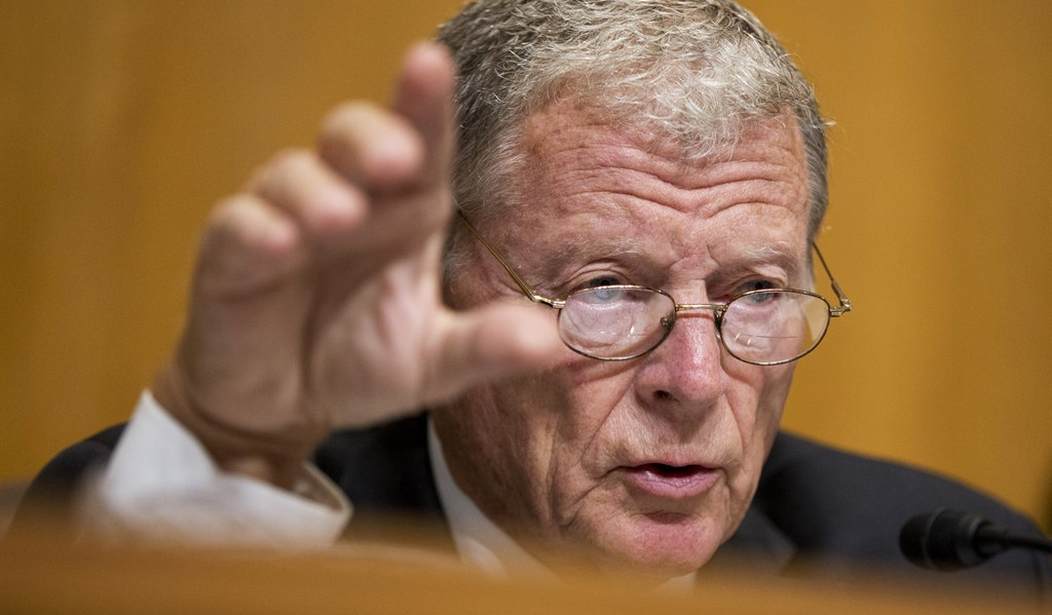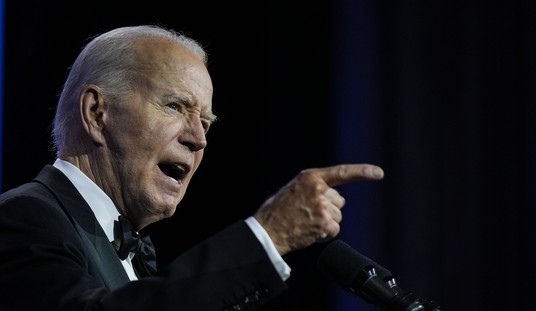The National Defense Authorization Act (NDAA) is one of the major pieces of legislation that Congress must deal with each year. This is the legislative vehicle Democrats have chosen to use in order to wage their war on Confederate place names by ordering a commission to study how to remove names of Confederate soldiers from military bases.
Donald Trump has vowed to veto the NDAA — an almost unheard of threat since the bill is vital to our national defense. But Trump may not have to carry out that threat. He’s found an ally in Senator James Inhofe of Oklahoma, who told a local newspaper that the amendment authorizing removal of Confederate base names will not be in the final bill that Congress will vote on.
Both the House and Senate have passed their own versions of the NDAA, which means a conference committee is going to have to work out the differences between the two. That’s where Inhofe will make his last stand.
I spoke to highly respected (Chairman) Senator @JimInhofe, who has informed me that he WILL NOT be changing the names of our great Military Bases and Forts, places from which we won two World Wars (and more!). Like me, Jim is not a believer in “Cancel Culture”.
— Donald J. Trump (@realDonaldTrump) July 24, 2020
In an interview with his home state newspaper published Friday, Inhofe vowed to remove the provision.
“We’re going to see to it that provision doesn’t survive the bill,” Inhofe told the Oklahoman. “I’m not going to say how at this point.”
Inhofe is chairman of the Senate Armed Services Committee, so he’s sure to be included on the Senate side of the conference committee. But unless he, himself, has allies on the committee, removing the base-renaming legislation will be very difficult.
It helps that Trump will support the effort.
Asked how Inhofe assured Trump he would able to remove the language when the NDAA passed overwhelmingly in the House and Senate, White House press secretary Kayleigh McEnany said she would “leave that” to the senator to work out.
“I’ll leave that to Sen. Inhofe as to how that works legislatively speaking, but the president was assured by Sen. Inhofe that that would be changing and the Republicans stood with the president on this,” McEnany said.
As Armed Services Committee chairman, Inhofe will be a key negotiator in the final version of the bill. He has previously expressed opposition to renaming bases and indicated he would work to water down the language in the conference negotiations.
But the requirement had bipartisan support in both chambers of Congress, and Democrats are unlikely to back down.
Democrats won’t go down without a fight. GOP opposition to the plan could be a potent weapon during the campaign in many districts.
“I will strenuously resist any attempt by Sen. Inhofe or any other Republican doing the President Trump’s bidding to delay, weaken or eliminate our bipartisan efforts to remove the names of traitorous leaders from military property during the conference committee process,” Rep. Anthony Brown (D-Md.), who sponsored the House language with Rep. Don Bacon (R-Neb.), said in a statement Friday.
Trump has virtually given up trying to attract middle-of-the-road moderates and is going full-tilt to energize his base of support, hoping that their turning out to vote for him will be enough for victory in the same states that surprised the pundits and pollsters in 2016. The good news is that the pollsters don’t seem to be any better at catching the latent support for Trump in many states.
The bad news is that by energizing his base, he’s also energizing the opposition to turn out their people to vote against him.










Join the conversation as a VIP Member